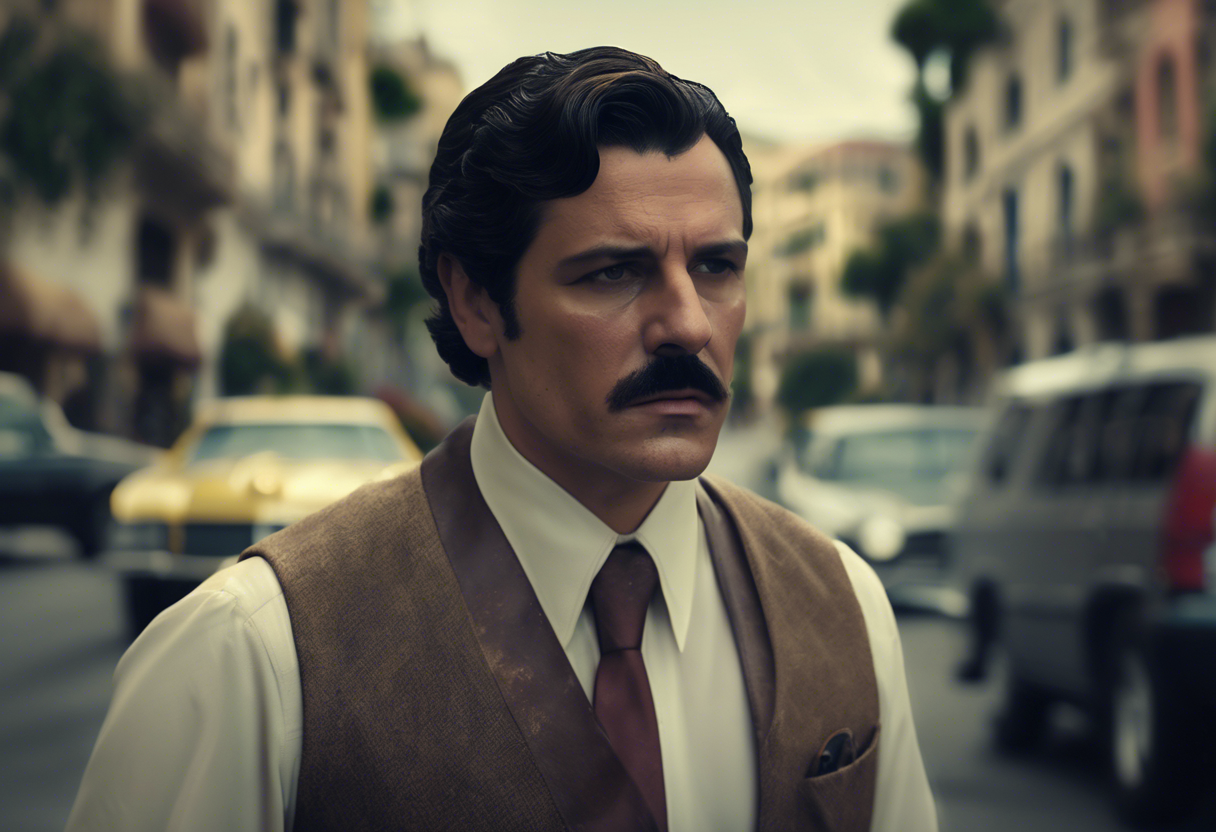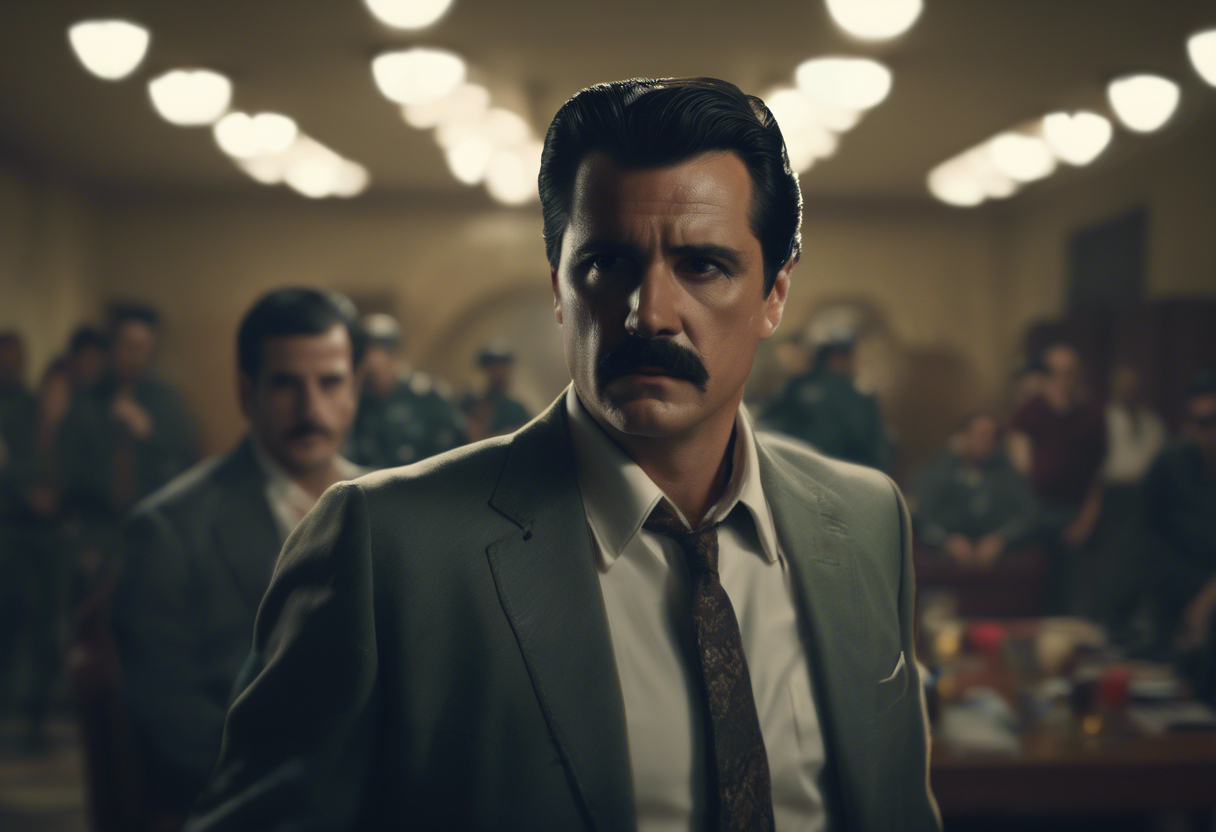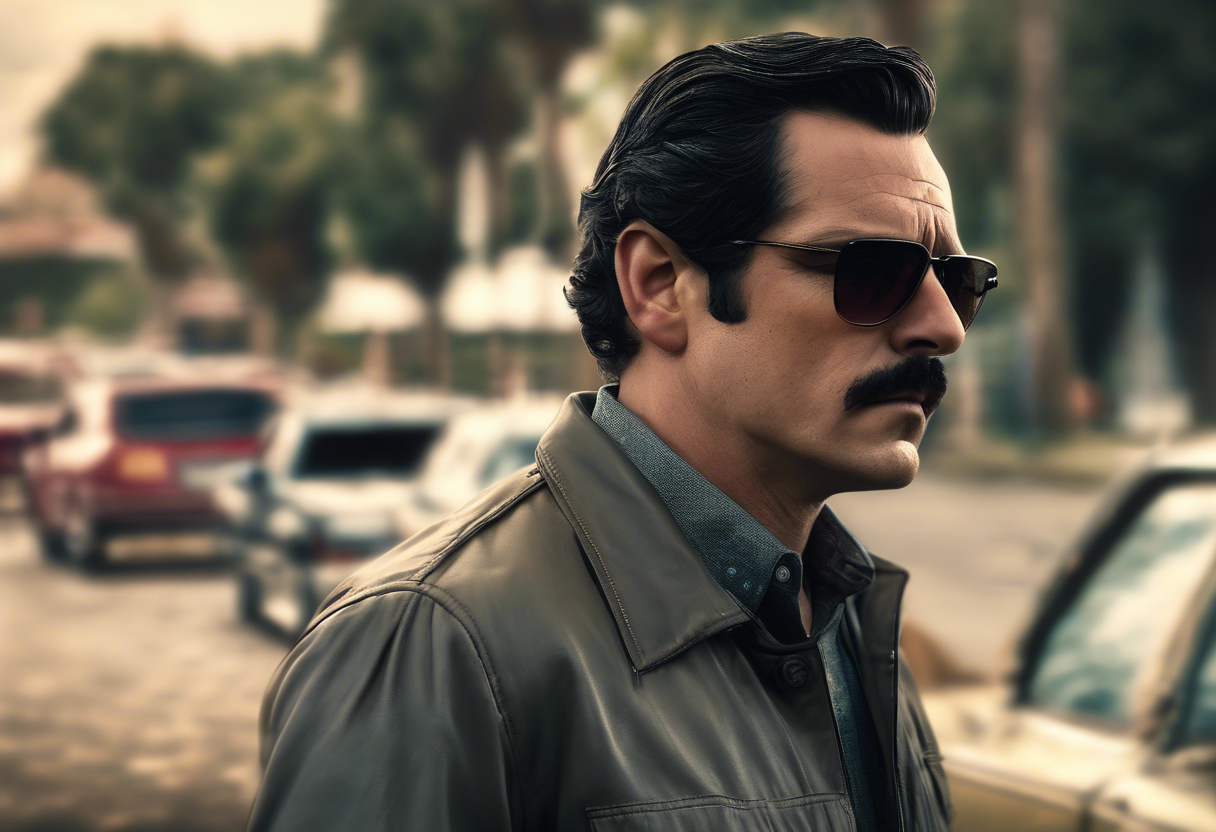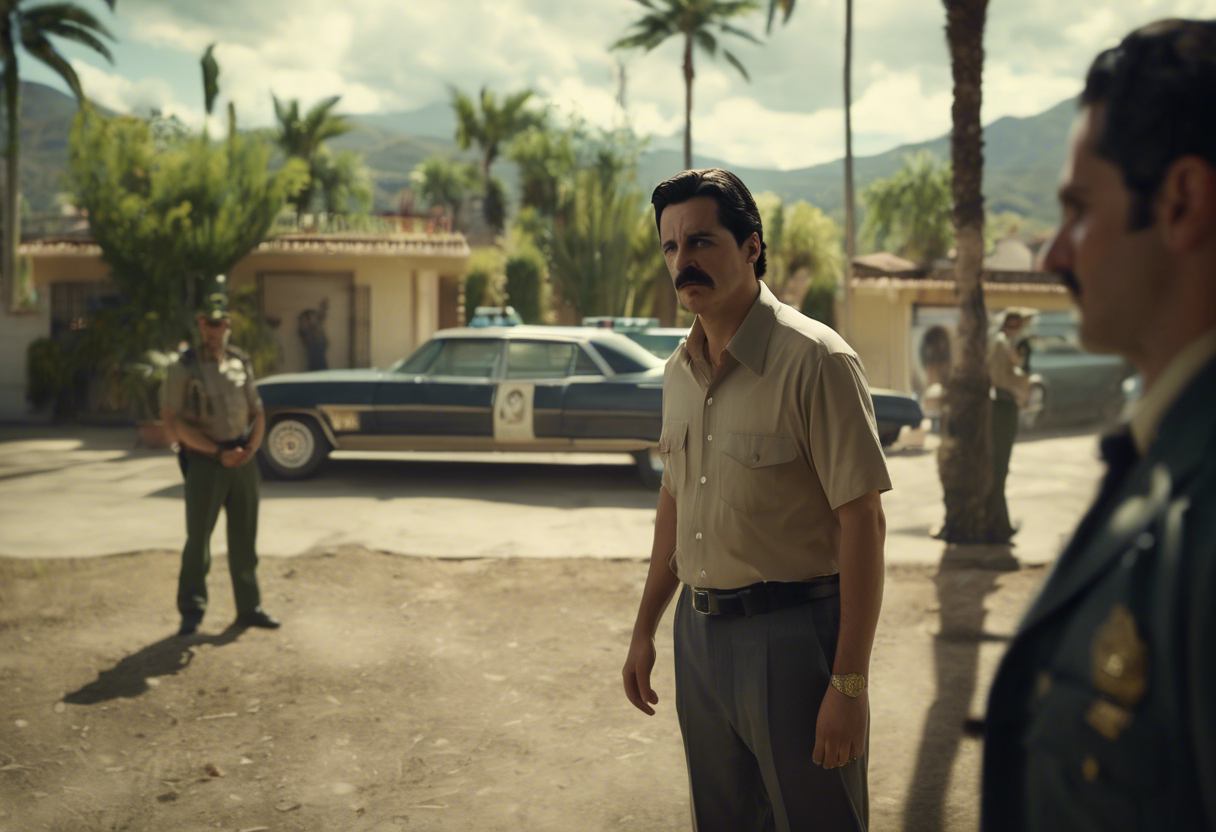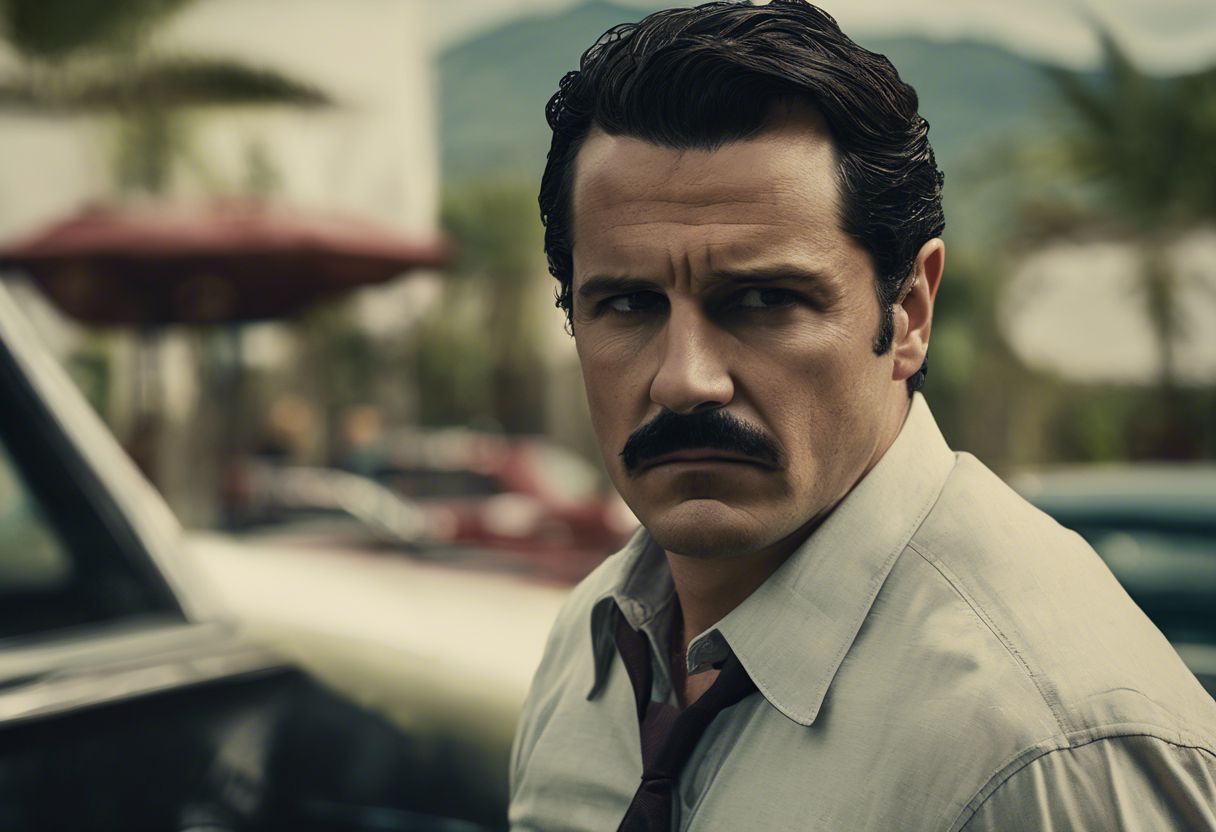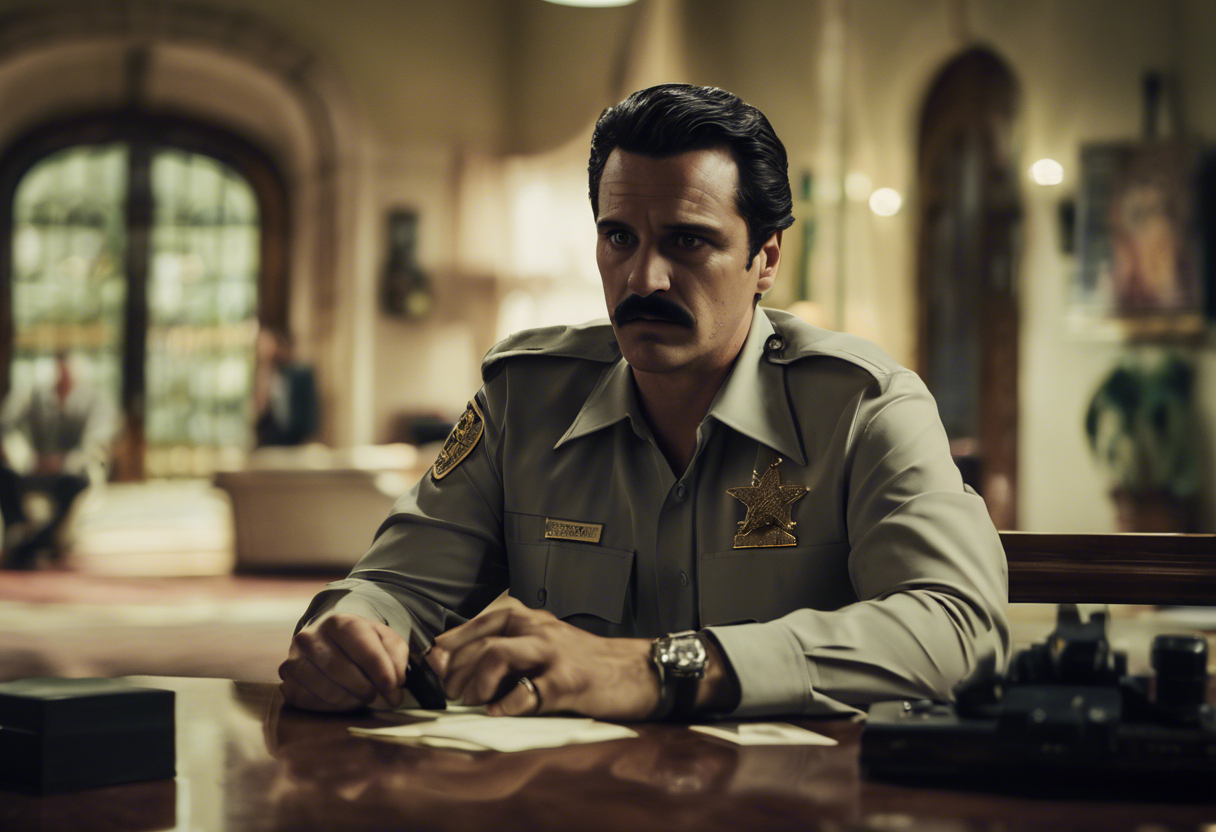Contents
Narcos Season 2: Episode 3 – Our Man in Madrid
Introduction
"Narcos" is a Netflix original series that chronicles the life and downfall of the notorious Colombian drug lord Pablo Escobar and the Medellín cartel. Created by Chris Brancato, Carlo Bernard, and Doug Miro, the series is known for its gritty realism, meticulous historical research, and compelling narrative. The second season, which includes "Our Man in Madrid," continues to explore the cat-and-mouse game between Escobar and the law enforcement agencies determined to bring him down.
"Our Man in Madrid" is the third episode of Season 2, directed by Andrés Baiz and written by Zachary Reiter. This episode marks a significant turning point in the season, introducing new strategies and characters that escalate the conflict between Escobar and his pursuers. The episode is part of a larger narrative arc that distinguishes "Narcos" from other crime dramas through its detailed portrayal of real historical events and figures.
Plot Summary
The episode "Our Man in Madrid" opens in the aftermath of a brutal attack orchestrated by Pablo Escobar, where his men coordinate the slaughter of 30 policemen. This act of violence serves as a stark message to President César Gaviria and the Colombian government, highlighting Escobar’s unyielding power and defiance.
In response to this atrocity, President Gaviria decides to bring back an old colleague, Colonel Hugo Martínez’s predecessor, Colonel Carrillo, who has been in exile in Madrid. Carrillo is a man feared by Escobar due to his ruthless and effective tactics against the cartel. His return signals a shift in the government’s strategy against Escobar, moving from conventional policing to more subtle and aggressive methods.
Upon his return, Carrillo meets with DEA agents Steve Murphy and Javier Peña. He outlines a new approach that involves small-scale, targeted operations aimed at dismantling Escobar’s network from within. This strategy is a departure from the previous large-scale raids that often ended in failure or further escalated the violence.
Carrillo’s first move is to make a bold statement by leading a team of over 100 men into Barrio Escobar, a neighborhood controlled by Escobar’s loyalists. Here, he urinates on a mural of Escobar, a symbolic act of defiance that sends a clear message to the cartel. The team also rounds up the street urchins who serve as Escobar’s eyes and ears, warning them of the consequences of continuing to support the cartel.
Meanwhile, the Search Bloc, led by Carrillo, begins to implement these new tactics, which include infiltrating Escobar’s inner circle and gathering intelligence through more covert means. This approach unsettles both Escobar and the DEA agents, who are forced to question the morality and effectiveness of these new methods.
As the episode progresses, the tension between Escobar and the authorities intensifies. Escobar, feeling the pressure of the new tactics, becomes increasingly paranoid and isolated. His actions become more erratic, leading to internal conflicts within the cartel and further alienating him from his allies.
The character development in this episode is significant, particularly for Carrillo, who is portrayed as a complex figure with a blurred line between right and wrong. His methods are cold-blooded and often disturbing, as seen when he orchestrates the execution of a captured cartel member, leaving Murphy and Peña shocked and disturbed.
The setting of the episode remains largely in Colombia, with a focus on the urban battlegrounds of Medellín and the rural hideouts of the cartel. The narrative arcs of the characters are deeply intertwined with the historical context, providing a rich and immersive experience for the viewer.
The central conflict of the episode revolves around the escalating war between Escobar and the Colombian government, with the DEA playing a crucial role in advising and assisting the local authorities. This conflict is multifaceted, involving not only the physical battles but also the psychological and moral struggles of the characters involved.
As the episode concludes, it is clear that the dynamics of the conflict have changed significantly. The introduction of Carrillo and the new tactics of the Search Bloc have set the stage for a more intense and personal confrontation between Escobar and his pursuers. This sets the groundwork for the subsequent episodes, which will delve deeper into the complexities and consequences of this war.
Themes and Symbolism
"Our Man in Madrid" explores several key themes that are central to the broader narrative of "Narcos." One of the most prominent themes is the blurred line between right and wrong in the context of war and law enforcement. Carrillo’s methods, while effective, are morally ambiguous and challenge the viewers to question what is acceptable in the pursuit of justice.
Another significant theme is the psychological impact of violence and trauma on individuals and communities. The episode vividly portrays the aftermath of the police massacre and the ongoing fear and intimidation faced by those living in Escobar’s shadow. This theme is further underscored by the character development of Murphy and Peña, who are increasingly troubled by the actions they are forced to witness and participate in.
Symbolism also plays a crucial role in this episode. The act of Carrillo urinating on Escobar’s mural is a powerful symbol of defiance and a direct challenge to Escobar’s authority. This act serves as a turning point, marking a shift in the balance of power between the cartel and the authorities.
Cultural Impact
"Our Man in Madrid" was part of a season that received widespread acclaim and attention from audiences. The episode’s portrayal of real historical events and figures resonated with viewers, contributing to the show’s cultural impact. The show’s influence can be seen in other media, with references to "Narcos" appearing in various forms of entertainment and popular culture.
The episode’s depiction of the complexities of the drug war and the moral dilemmas faced by law enforcement also sparked significant discussions and debates. This cultural relevance helped to cement "Narcos" as a landmark series in the crime drama genre.
Critical Reception
Critics praised "Our Man in Madrid" for its intense and gripping narrative, as well as its strong character development. The introduction of Carrillo was particularly noted for adding a new layer of complexity to the story. Reviewers highlighted the episode’s ability to balance action, suspense, and moral introspection, making it a standout in the season.
Viewers also responded positively, appreciating the episode’s realistic portrayal of the conflict and the ethical questions it raised. However, some critics noted that the episode’s graphic violence and morally ambiguous characters could be unsettling for some viewers.
Legacy
"Our Man in Madrid" has left a lasting impact on the television landscape. The episode’s innovative approach to storytelling, combining historical accuracy with compelling drama, has influenced many subsequent crime dramas. The character of Carrillo, in particular, has become a memorable figure in the series, symbolizing the complexities and challenges faced by those involved in the drug war.
The episode’s themes of morality, violence, and the psychological toll of conflict continue to resonate with audiences and creators alike. As a result, "Our Man in Madrid" remains a significant and influential episode within the "Narcos" series, contributing to its enduring legacy in the world of television.

